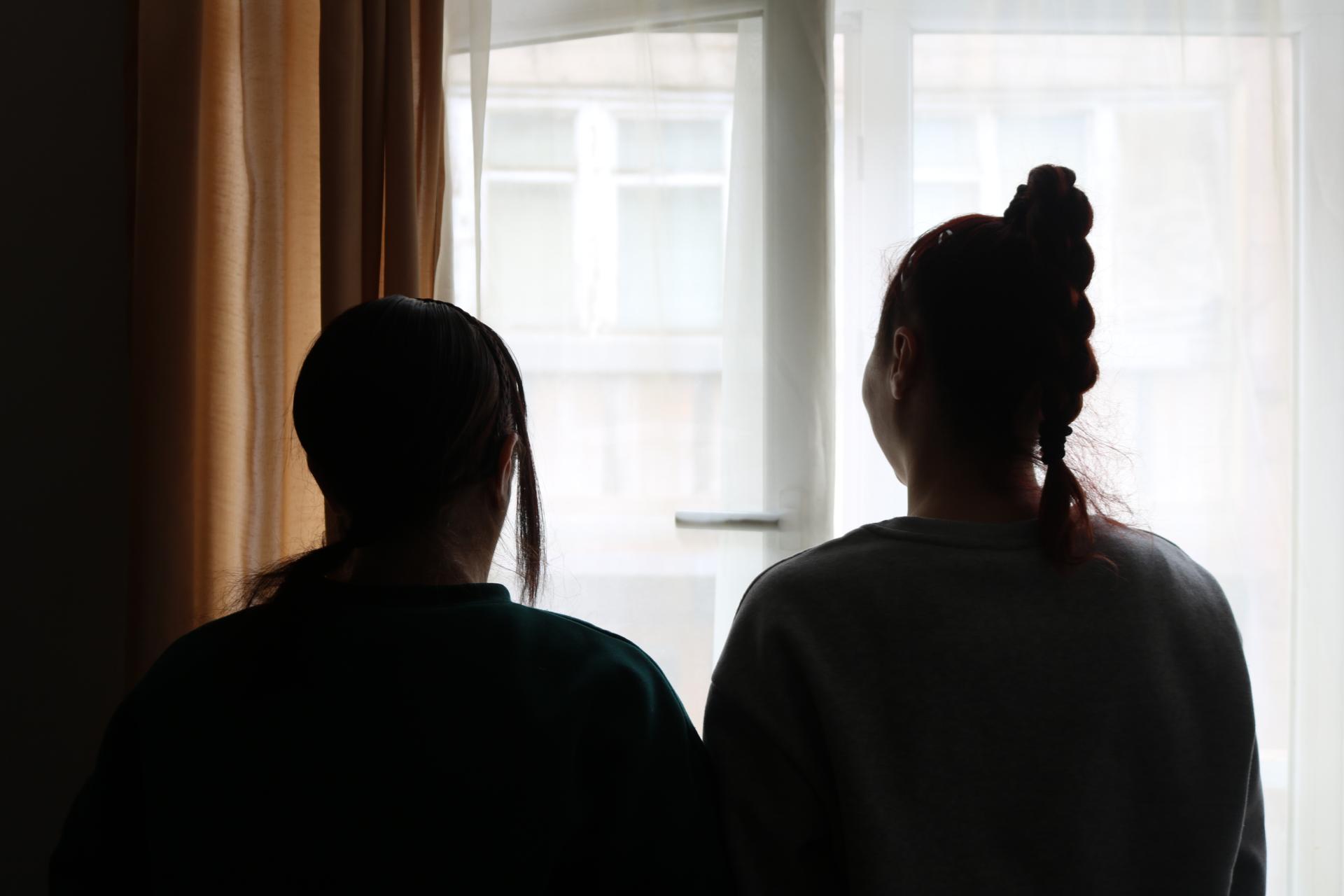

One year on: “People understand now that we had no choice but to leave our old lives behind”
By Carlotta Wichmann, Action Against Hunger
Back in September and October of 2023, the conflict in Nagorno-Karabakh forced more than 100,000 people—almost the entire population—to flee to Armenia. Initially, most refugees relocated to Goris, which is part of the Armenian border region Syunik. More than one and a half years on, many have moved to larger cities, such as Kotayk, Ararat or Yerevan. Especially in Yerevan rental and property prices are high, leaving large families cramped into one-bedroom apartments. The rapid displacement rid refugees of the chance to transfer economic assets, leaving them in an economically vulnerable situation. It only provided them with enough time to pack up a few personal belongings and possibly a bit of food and water for the journey.
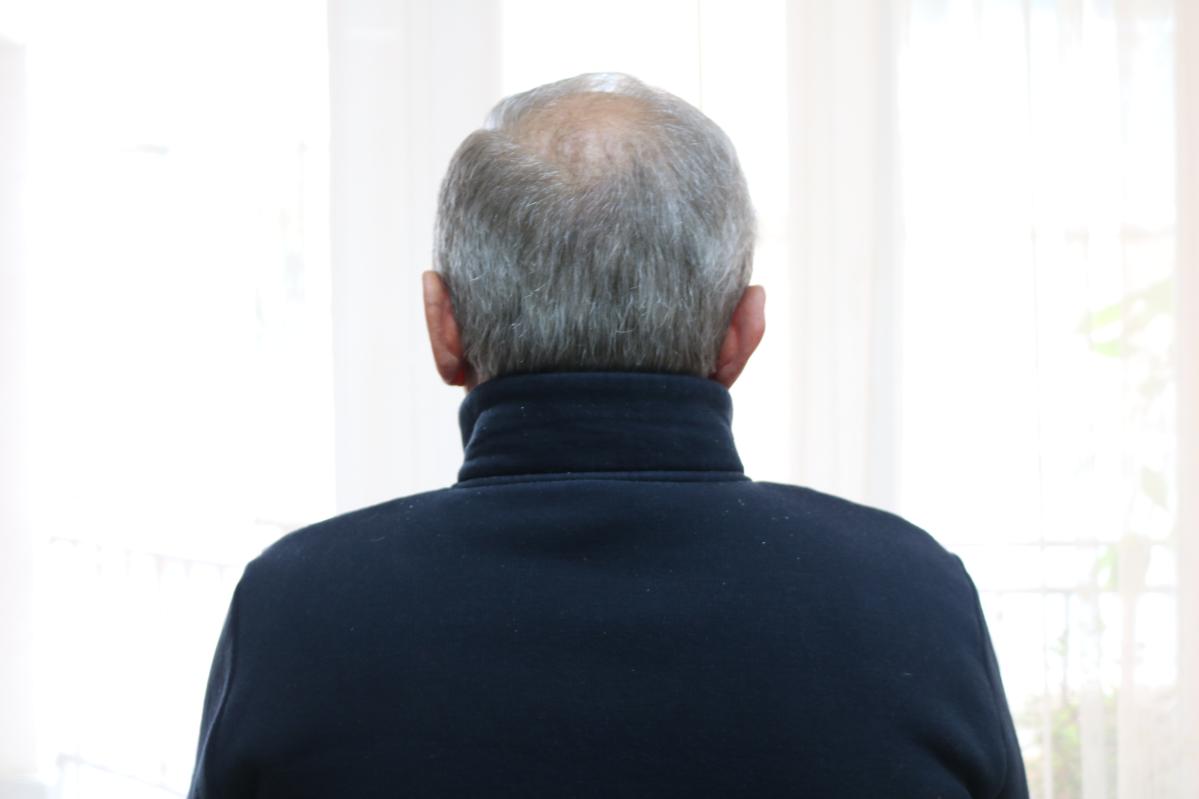
In my interviews with refugees from Nagorno-Karabakh, I wanted to learn more about how people perceive their lives in Armenia's capital now. First, I meet Vardan*, a man in his 60s, he looks very put-together, like someone you would assume to be a politician. He lived in a city located right on the border to Azerbaijan: “life was normal in Nagorno-Karabakh, even though there was a war,” he recalls. Vardan is a former mechanical engineer, owned a transport business and later served as a head of his community. Once retired, he lived in a spacious house with a large garden. Everyone, he tells me – all his neighbours and relatives – wanted to stay in Nagorno-Karabakh: “people did everything they could to protect their properties, protect our motherland.” Vardan explains that when houses were bombed, people from the community got together and re-built as much as they could. But the day came when they had no choice but to leave everything behind.
Vardan and his family – his wife and three adult children – are only one of the many refugees that made their way to Armenia with nothing but the clothes on their back. Today, nothing is left of the previous ease he experienced when living in Nagorno-Karabakh, where he imagined himself enjoying his retirement. Today, Vardan and his wife live in a one-bedroom apartment on the 4th floor of a high-rise building – a major change from the house they once called their home. “Things are not okay for us anymore,” he says, looking down at his hands. Vardan explains that he spent his entire life building the house he and his family were living in, “it hurts not knowing whether our house is still standing, whether the garden still exists and whether the graves of my mother and father have been destroyed.” He turns to look at me and adds, “It is not that life is bad here, but I miss my old life in Nagorno-Karabakh, even under blockade.”
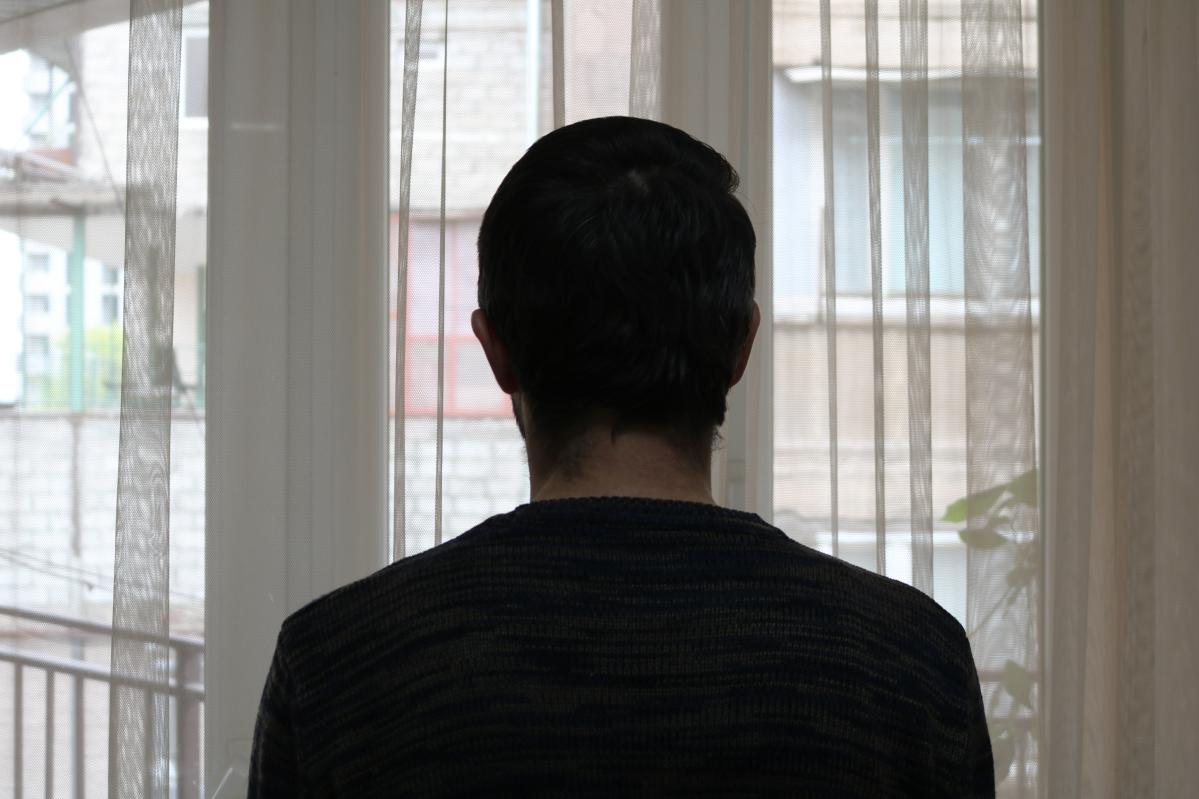
Next, I meet Narek*, a tall man in his mid-40s, wearing glasses and a kind face. He and his family had a happy life in Nagorno-Karabakh's capital city Stepanakert. In Stepanakert, they had established a tight-knitted network of neighbours, friends and family members. Narek earned enough money to afford his own apartment and a house where his family would live on the weekends. Since September 2023, Narek, his parents, his wife and their two children share a one-bedroom apartment in Yerevan. Three generations live in a small space, confronting individual challenges as they adapt to a new reality.
A large city like Yerevan also has its demands, Narek’s parents are faced with mobility issues and struggle to find their way around the city, particularly the metro and bus system are difficult for them to navigate. The former technical security specialist came up with an idea: he created a Facebook group, establishing a peer-to-peer support network for refugees and others in vulnerable situations to support one another. His long-term plan is to establish an NGO that helps people who struggle to find their way, making their lives easier and helping them feel less alone. Drawing on his experience of the past year and a half living in Armenia as a refugee, Narek emphasises the ongoing need for Armenian society to adjust to the new reality. When I ask him about specific struggles his children are facing, he tells me about difficulties at school. They are being bullied for the dialect spoken by people from Nagorno-Karabakh. “The mentality in schools needs to change,” he says, “we are more the same than we are different, it is just a matter of perspective.”
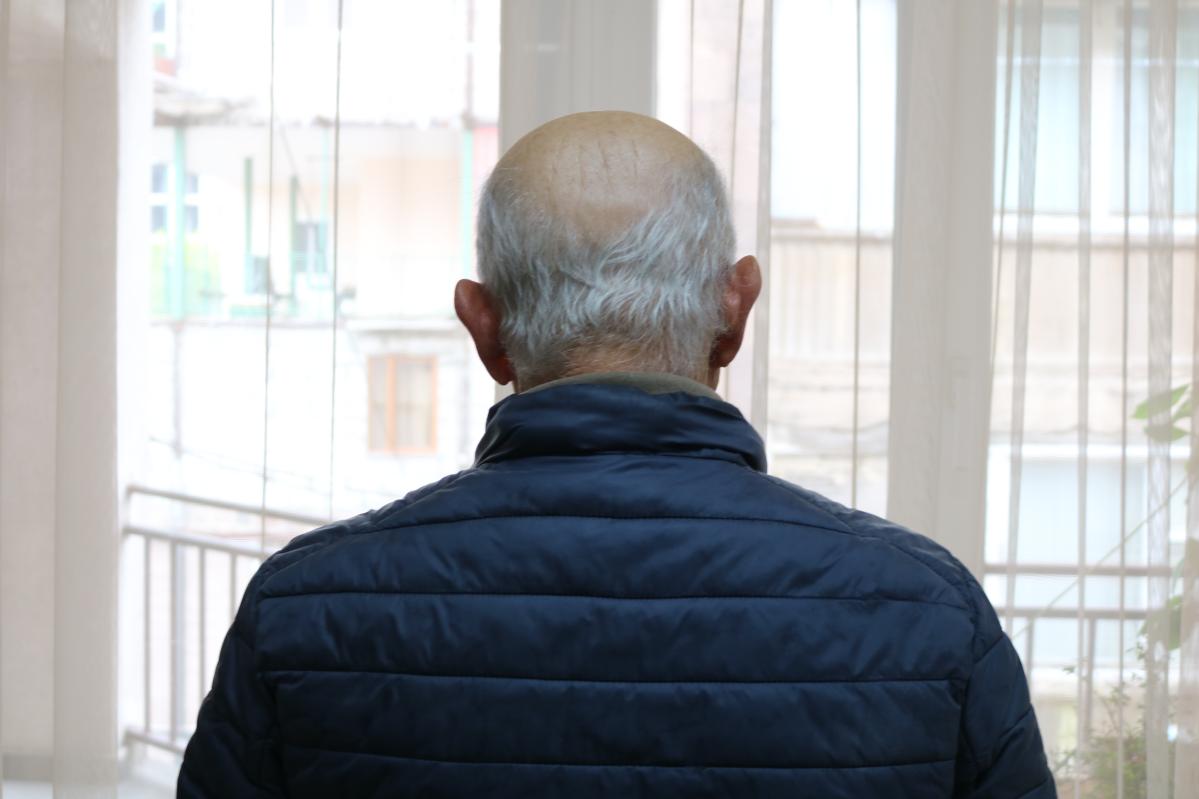
Hovnan* is a kind looking man in his 70s with light hair and a gentle face. He looks at me with a soft smile when he tells me about his life in Martuni, where he and his family resided in a house that his father once built. One of his daughters was the first one to flee Nagorno-Karabakh, on September 25th, 2023, the day of the explosion at a military fuel depot that killed more than 200 persons and left more than 100 injured. The rest of Hovnan’s family – including his two other children and grandchildren – followed one day later. Today, he shares a small apartment with five family members, including his daughter, the son-in-law and their two young children. While the daughter – a dentist – has found work in her field, her husband – a lawyer – has been unable to do the same. He now drives a taxi to help support the family, while she remains the main breadwinner.
Hovnan, a former owner of a large construction company and now pensioner, tells me he desires to be able to find a job in the city. He knows that this is unlikely due to his age, but “if a poor man has no hope, he will die the next day,” he says with a smile, though the sadness in his eyes tells a different story. Hovnan tells me that he is happy to support his daughter with caring for the children, even though he acknowledges it would be easier for him and his wife to live in the rural areas of the country. “My grandchildren are young, they don’t understand how it feels to lose your motherland, the life that you have built […] having to leave everything behind, that is the hardest part,” he tells me. And even though life here is very different from how it was back in Nagorno-Karabakh, he seems to have come to terms with building a life in Yerevan.
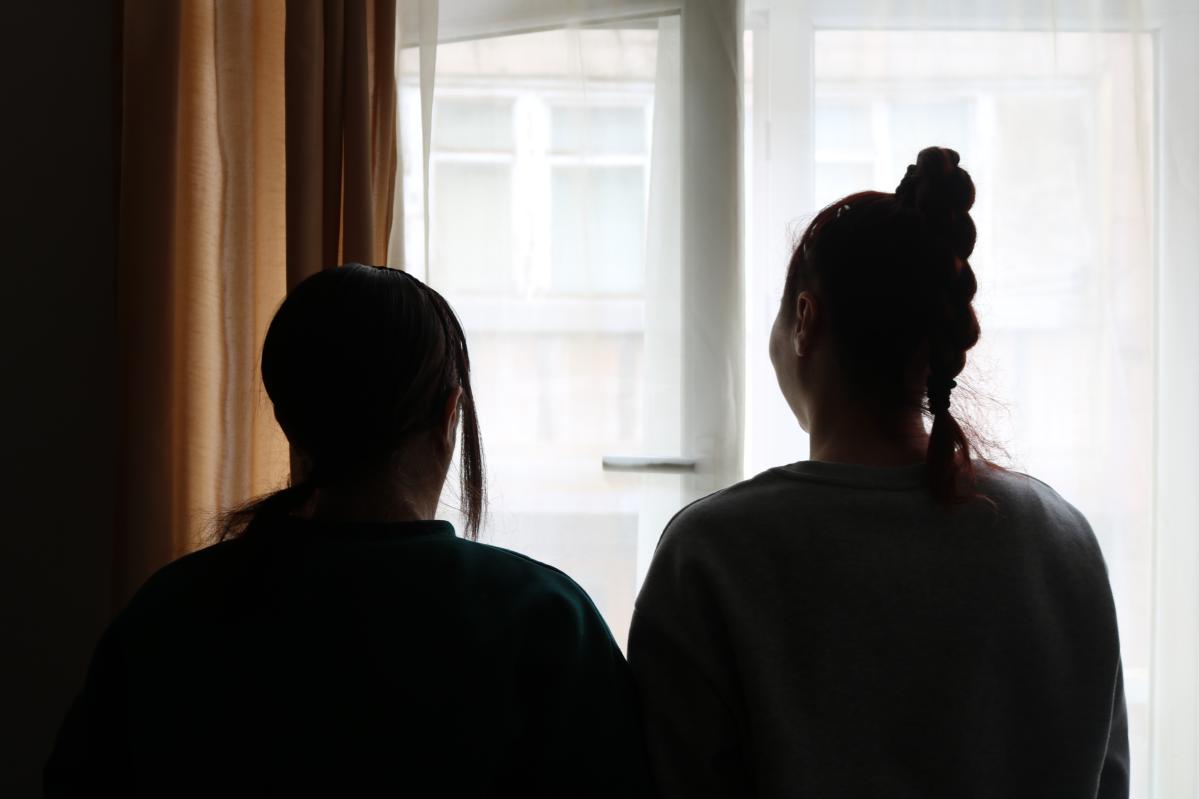
I also had the opportunity to speak to Ani*, a young woman in her mid-30s who fled Nagorno-Karabakh back in September of 2020. Her story sounds similar to the ones of Hovnan, Narek and Vardan; Ani and her mother – who has a long history of health issues – intended to stay in their home until the very last minute. It was only when neighbouring houses were bombed, they decided to head towards the nearest bus station where women and children were already being evacuated. Unable to hold back her tears, Ani recalls how she was able to find safety in Armenia: “Back in Nagorno-Karabakh, I lived an active life, I had a large group of friends. I worked at a supermarket. Oftentimes, soldiers would come in and give updates on the status of the situation in our region.” One day, a soldier handed her a note that had a telephone number written on it, “in case the situation escalates, call this number once you have made it to Yerevan,” he told me,” she says. The two arrived in Yerevan on October 4th, 2020, and were taken in by the soldier’s family. Initially, she tells me, they had hoped for a brief conflict – like the 4-day war in 2016 - “but this time, it was different.” The war lasted until November 10th, with Azerbaijan gaining one-third of Nagorno-Karabakh’s territory.
Ani and her mother decided to stay in Armenia and have since found housing in a social housing programme run by a local NGO. “If we had gone back to Nagorno-Karabakh, the situation might have been completely different. Who knows if we even would have had the opportunity to return to Yerevan,” she explains, reflecting on the decision. Their living space consists of one small bedroom, the kitchen and wash facilities they share with a single-mother and her child. Ani has found a job at a local supermarket, where she works nights to be able to care for her mother during the day. She tells me that her life now feels lonelier, since her friends that once were neighbours have found other places to stay after fleeing from Nagorno-Karabakh. When I ask her how the situation for refugees in Armenia has changed since October 2023, compared to when she first arrived in 2020, she says, “when we first arrived, people were not as welcoming.” Five years on, “people have more empathy, they are more accepting of us, more open and understanding. People understand now that we had no choice but to leave our old lives behind,” she asserts. This understanding, she says, makes life easier for both her and other refugees.
These are just excerpts from four of the many deeply moving stories I have heard. One recurring theme, especially among the older generation, is the profound connection they feel to their homeland and the difficulty of adjusting to their new reality. Despite knowing that the possibility of return is unlikely, the longing is ubiquitous. I admire the strength and resilience each and everyone of the refugees I have spoken to have presented. None of them have given up but have found their individual way to cope.
At the end of their respective interviews, Vardan and Hovnan tell me they are friends –two men who, under different circumstances, might have never met, but have found friendship in their shared search for stability in their new lives. This gives me hope that refugees, in time, can find a community – a home away from home – even if it takes time to adjust.
Action Against Hunger is committed to addressing the needs of refugees from Nagorno-Karabakh. We have provided cash vouchers, in-kind support, socio-economic integration programs, and mental health and psychosocial support. Our large-scale rehabilitation and reconstruction efforts include social housing, social care and protection facilities, and the rehabilitation of water, sanitation, and hygiene infrastructure. We have also installed adaptive equipment to make facilities accessible to people with disabilities. As a result of our interventions, more than 500 of the most vulnerable people now enjoy decent and dignified housing conditions.
*names changed to protect identity of the refugees
